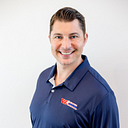Dear VA Secretary Nominee Mr. McDonough: Here’s How We Fix the Broken VA (A Veteran’s Perspective)
Dear Mr. McDonough, as a disabled veteran, I support your nomination as the next VA Secretary, but only if you promise to bring about radical change and innovation at the Department of Veterans Affairs (VA).
Truthfully, I am sick-and-tired (literally and figuratively) of the impersonal nature and impossible hoops we must jump through to obtain the VA care and benefits we have earned for our service.
Millions of other veterans feel this way, too.
There are three things you must do Sir, if confirmed as the next VA Secretary.
First, it is time for our leaders to THINK DIFFERENTLY about the VA.
In my humble opinion, the main problem plaguing the VA is its leaders have failed to imagine new solutions to old problems, primarily because they lack the ability to ask the right questions.
Heck, they might not even realize there are problems.
Albert Einstein once remarked, “We cannot solve our problems with the same thinking we used when we created them.”
Touché.
You must be weary of the deeply entrenched and bureaucratic “advice” you will hear from your leaders at the VA.
You must challenge all assumptions, ask better questions of those around you (and be prepared to raise the “B.S.” flag), and listen carefully to what us veterans are telling you.
Just because everyone agrees with you does not mean you are right, and just because everyone disagrees with you does not mean you are wrong.
Follow your heart, your gut, and your intuition, and always do what is best for veterans.
Second, it is time for FEWER pills and MORE community.
The VA’s answer to the veteran’s mental health crisis and suicide epidemic is more pills.
Wrong.
The answer is more community.
It is time for the VA to unite with local communities, to include creating and leading in-person and virtual events for veterans worldwide.
Depression, anxiety, and mental health issues are often underlying symptoms of loneliness and isolation, not necessarily the cause.
Veterans like me are craving a sense of identity, belonging, and purpose again that we have long lost since leaving the military.
We want to feel important.
Stop calling us by our last name and last 4 of our social security number — we are not numbers in your system — we are people, with first names and close ties to our branch of service, who courageously volunteered and raised our right hands to defend freedom.
Instead, try starting every interaction by asking us for our branch of service, thank us, smile, and welcome us home at the VA.
Let us know we matter, and that you care.
Third, it is time for the VA to create a free BASIC EDUCATION and TRAINING course for all things VA benefits.
It must be simple and easy to understand for all veterans.
While I am not the brightest bulb on the porch, I am not stupid, either.
Yet, it still took me seven years of seemingly endless battles and multiple rounds of denials after leaving the military to finally get the VA benefits I deserved for my honorable service.
And I consider myself lucky.
Many millions of veterans have it far worse.
75% of veterans alive today do not have any VA benefits at all.
In fact, according to the most recent Veteran Benefits Administration’s (VBA) annual report to congress, just one in four (1/4) veterans get any benefits from the VA.
This is shameful and it must change now.
In my experience, this is due primarily to the lack of basic education and training on the subject.
It should not take an advanced degree and thousands of hours of time in the trenches to obtain VA benefits we deserve by law.
The time for radical change and innovation at the VA is right now, and it starts with you Sir.
Brian Reese is one of the world’s leading experts and advocates for veterans’ benefits. A former active-duty Air Force officer, Brian deployed to Afghanistan in support of Operation Enduring Freedom and received the Defense Meritorious Service Medal. He is a Distinguished Graduate of Management from the United States Air Force Academy and earned his MBA as a National Honor Scholar from the Spears School of Business at Oklahoma State University.
